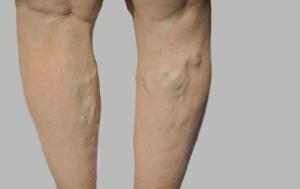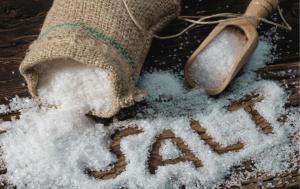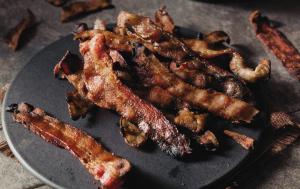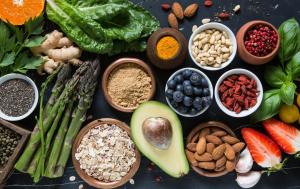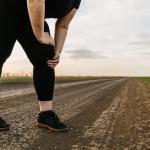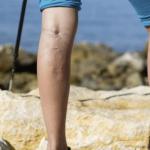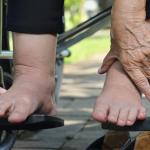
Did you know that what you choose to eat can have a major impact on your overall vein health? If you have varicose veins, eating a healthy diet is key to promoting proper blood circulation throughout the body. Not only do unhealthy foods place excess strain on your veins, they can also lead to weight gain. Unfortunately, being overweight is a major risk factor for the development and worsening of vein disease, or venous insufficiency.
Vein disease is the underlying medical condition behind varicose veins. You should be aware that a poor diet and excess weight are not the only risk factors involved. Other potential contributors to vein disease include:
- Getting older
- Being female
- Pregnancy
- Standing or sitting for prolonged periods
- Having a family history of vein disease
- High blood pressure
- Diabetes
We hope you’ll consider some practical advice from our experts on what varicose veins foods to eat and avoid. Eating a healthy, well-rounded diet can improve not only your physical health, but your cognitive and emotional health, too.
If you need additional guidance on what to eat for better health, ask your doctor about visiting a dietician. You can also always discuss your diet with one of our top-rated vein specialists. During your appointment, our specialists can also educate you on potential varicose vein treatment options.
Foods to Avoid if You Varicose Veins
We are so glad that you are interested in taking control of your vein health with dietary changes. Let’s start by discussing what to avoid with varicose veins. Try to limit foods that are:
High in Sodium
You may have noticed that your swollen legs and other vein symptoms are even more painful after eating salty foods. So, what is going on? You may be aware that consuming too much sodium can cause your body to retain water. What you may not realize is that this process often leads to increased blood volume and higher blood pressure. This puts additional pressure on your venous system and can worsen varicose vein symptoms.
High-sodium foods are often hard to identify because they can appear in unexpected places. We recommend avoiding processed foods as much as possible. Canned foods, deli meats, and even salad dressings also contain sodium.
High in Sugar
Did you know that added sugars can affect your vein health? The problem begins when these sugars cause your blood sugar to rise. This results in a release of excess insulin into your blood, which can be damaging to your vessels over time. This is one of the reasons why diabetics are at higher risk for developing vein disease.
Of course, dessert is not the only source of added sugar in your diet. Like sodium, sugar hides out in packaged and processed foods, even your spaghetti sauce. We suggest you carefully read nutritional labels before purchasing, so you understand exactly what you are considering eating. Better yet, indulge your sweet tooth with nature’s favorite candy –– fiber-rich fresh fruit.
Low in Fiber
Eating a diet low in fiber does not promote good vein health. For one thing, it can lead to constipation. When an individual is constipated, they may need to strain to have a bowel movement –– which also strains their veins. This can lead to hemorrhoids and further impact painful varicose vein symptoms.
Unhealthy Fats
Unlike plant-based fats like avocado and olives, saturated fats offer little in the form of nutrition or fiber. In addition, they tend to slow digestion and can lead to constipation. They also contribute to issues with weight management. Try walnuts as a delicious, filling way to get in your healthy fats.
Alcohol
If you have varicose veins, you may want to reconsider before reaching for your next cocktail or glass of wine. Among other issues, alcohol is a diuretic and can lead to dehydration. When dehydrated, your body is forced to work harder to circulate blood. This ultimately places greater strain on your veins, leaving you more susceptible to painful and uncomfortable vein symptoms.
Caffeine
For most people, drinking a cup of coffee in the morning probably isn’t too big of a deal. But if you have varicose veins, you may be causing further damage. Caffeine constricts the blood vessels and raises your blood pressure. This can lead to increased symptoms and even more diseased veins.
SCHEDULE A CONSULTATION ONLINE
Foods to Choose if You Have Varicose Veins
Along with helping you determine what food to avoid with varicose veins, we also have recommendations on what to eat. We suggest:
Fresh fruits and vegetables
Eat plenty of fiber-rich leafy greens, antioxidant-rich fruits like blueberries and blackberries, and Vitamin C-rich citrus. You may also benefit from natural anti-inflammatories, such as avocados, ginger, and tomatoes. Remember to eat at least five servings a day, and a mix of raw and cooked.
Whole grains
Just because you should avoid processed foods doesn’t mean you can’t eat any bread, pasta, or rice at all. Instead of choosing refined grains, experiment with whole wheat bread or pasta, brown or wild rice, and oatmeal. You can also explore ancient grains like quinoa and farro.
Lean proteins
Although we recommend avoiding red meat and sausage, go ahead and load up on lean proteins. These include skinless chicken, fish and other seafood, eggs, and plant-based sources of protein like tofu.
Low-fat dairy
Dairy products are an important source of calcium and Vitamin D, but take care not to go overboard. For some, too much dairy can lead to digestive issues and constipation. To avoid this problem, eat three servings daily alongside other fiber-rich foods.
Nuts and seeds
Did you know that these nutritional bombs can help improve your circulation? Feel free to snack on unsalted nuts and add chia or flax seeds to your diet. Watch your portions, though! Nuts and seeds are full of nutrients but also high in calories.
Healthy fats
Along with nuts and seeds, you can also enjoy other healthy fats like those in olive oil, avocado, and salmon.
When it’s Time to Get Varicose Veins Treated
Sometimes, knowing which varicose veins foods to eat and avoid isn’t enough to manage your painful and uncomfortable symptoms. The reality is that dietary improvements can only go so far and varicose veins don’t just disappear on their own. Common vein disease symptoms include:
- Swelling in your legs, ankles, and feet
- Cramps or achiness in the thigh or calf
- Tired or heavy legs
- Leg restlessness, especially at night
- Itchy, dry, or hardened skin on your legs
- Open, non-healing wounds on your legs and ankles
- Leg pain that is alleviated by walking or leg elevation
- Visible Varicose or Spider Veins
Varicose vein and spider vein treatments relieve pain and discomfort, improve the appearance of your legs, and prevent bleeding and superficial clots.
At USA Vein Clinics, our top-rated specialists offer minimally-invasive treatment for varicose veins, spider veins, and other venous conditions. Vein treatments are usually covered by health insurance. When you are ready to schedule an initial consultation, you can choose to visit one of 168 nationwide clinics.
*Last reviewed 12/3/2024

